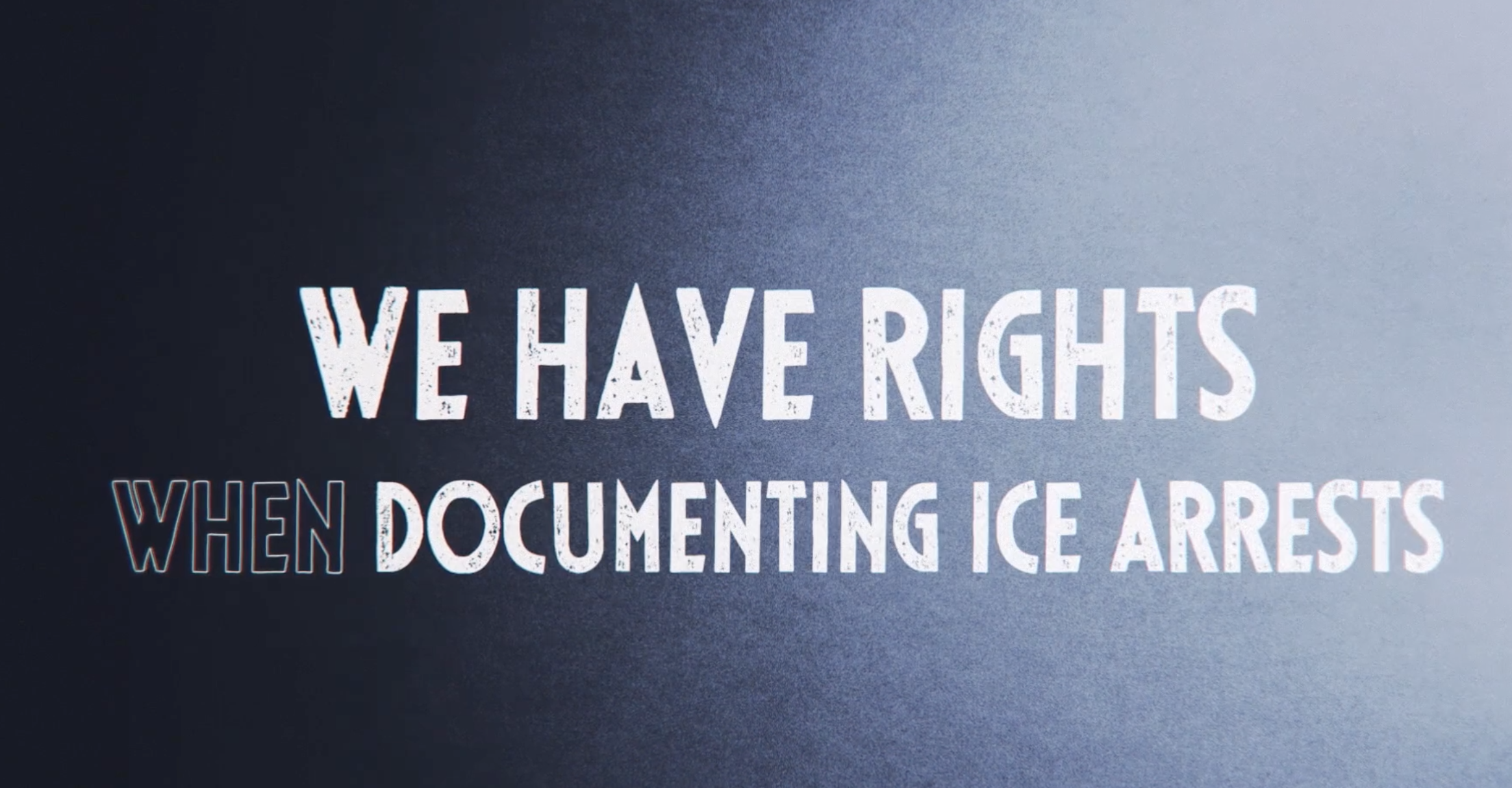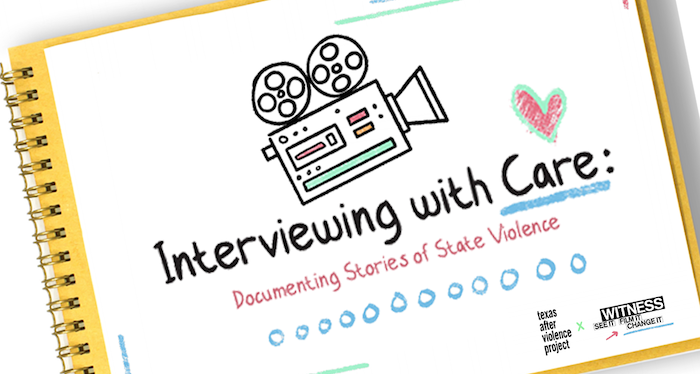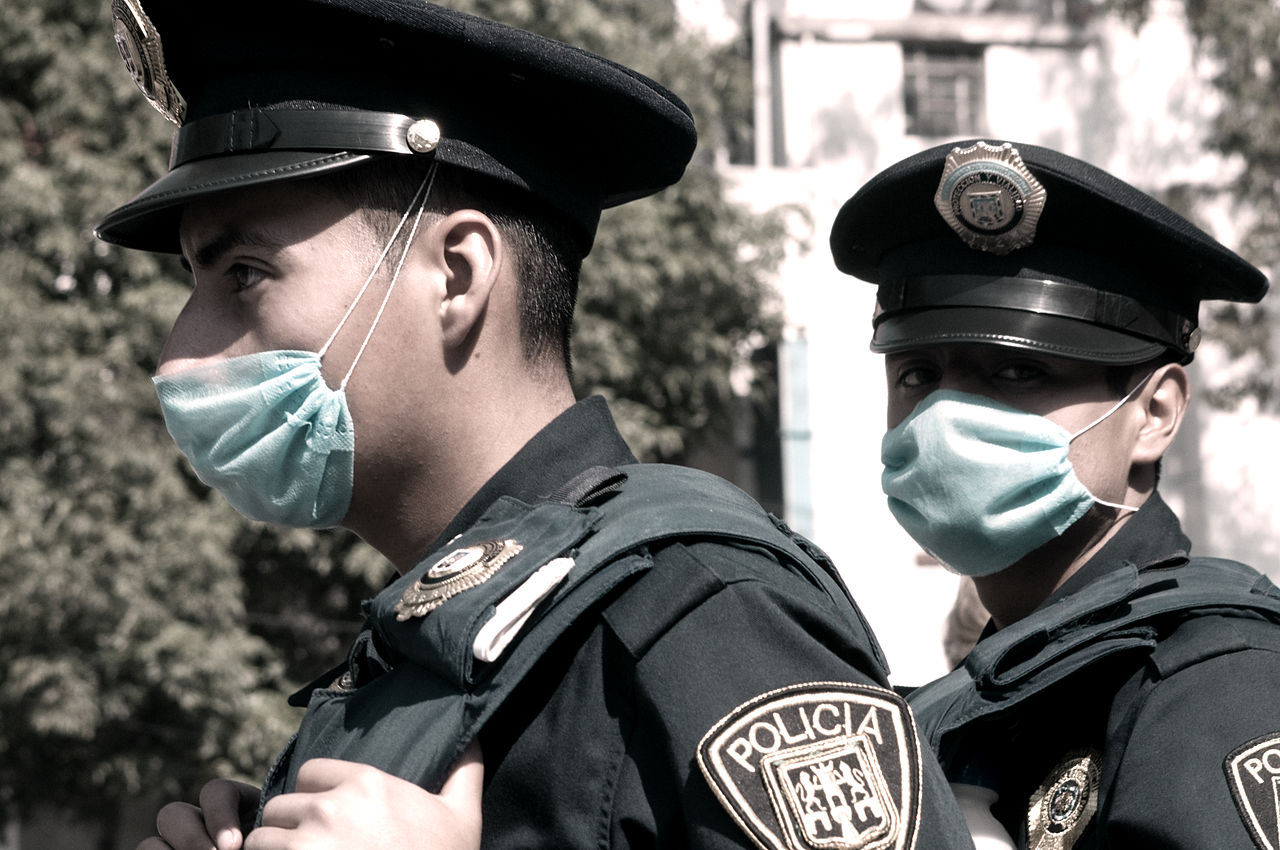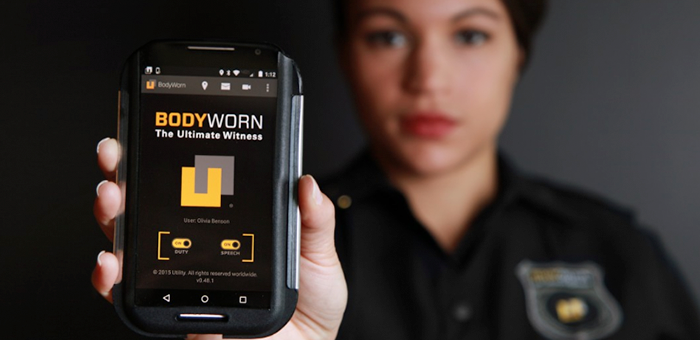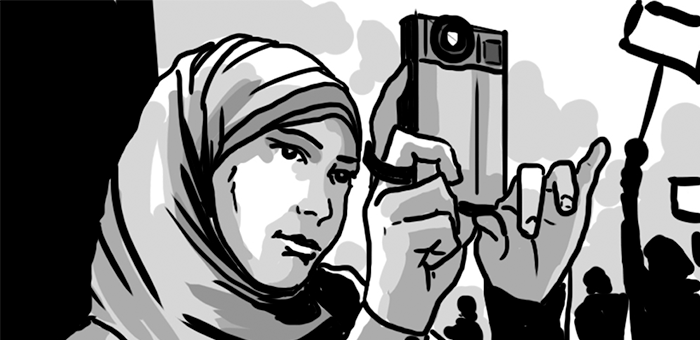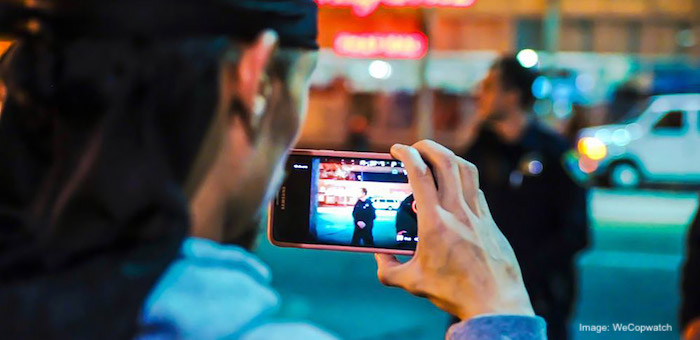Right to Record
Overview
When WITNESS talks about the “Right to Record,” we are primarily referring to the right to take out a camera or cell phone and film the military and law enforcement without fear of arrest, violence, or other retaliation. The Right to Record is clearly protected under provisions of international human rights standards such as the International Covenant on Civil and Political Rights and Universal Declaration of Human Rights that protect freedom of expression, freedom of assembly, and the right to information. In some countries, notably the United States, the Right to Record is legally recognized. In others, such as most of the Persian Gulf region, recording law enforcement and other government officials is expressly prohibited. And in other places, like most of the European Union, the law is unclear.
The Right to Record at protests has been explicitly recognized by the United Nations, but we contend that the Right to Record applies to all interactions with law enforcement and the military — in other words, the Right to Record is in force during everyday policing or military activities, not only assemblies. We also believe that the right to record should encompass the right to document public proceedings of elected officials, something that is widely prohibited across the world.
There are many questions about how the Right to Record should be defined. Does the Right to Record include the right to publish, including on the Internet? Does it means only the Right to Record with a camera or does it extend to other technology like drones? Few of these questions have been considered publicly.
The materials linked from this page will help explain what the right to record is, why it is essential for human rights, what laws and policies support the right to record at domestic and international levels, and how human rights defenders can exercise their right to record safely and effectively. We will share case studies, tip sheets, blog posts, and material from specific countries and regions.
You can explore cases by the following countries:
Case studies
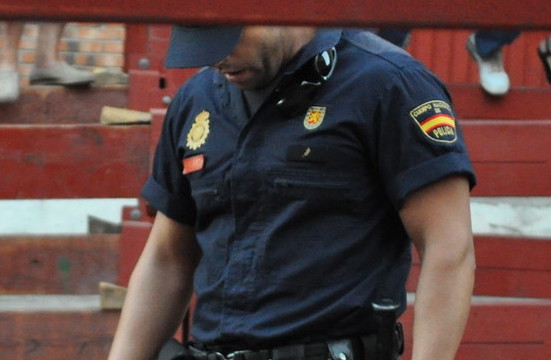 31 March | Spain | | No comment
31 March | Spain | | No commentGuest post: THE RIGHT TO RECORD IN SPAIN by Xnet
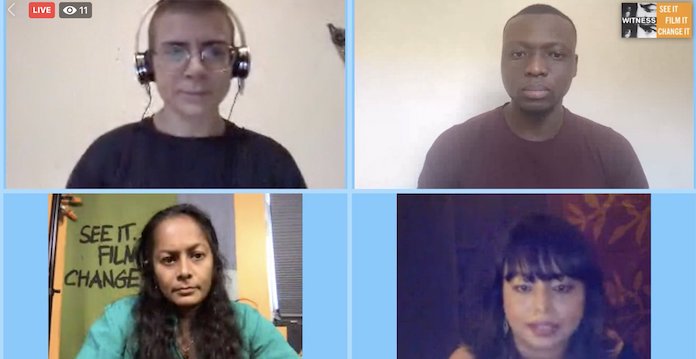 12 November | Right to Record | Jackie Zammuto | No comment
12 November | Right to Record | Jackie Zammuto | No commentLIVESTREAM: Your Cameras, Your Rights

